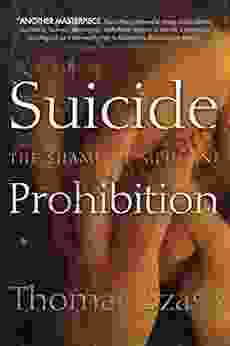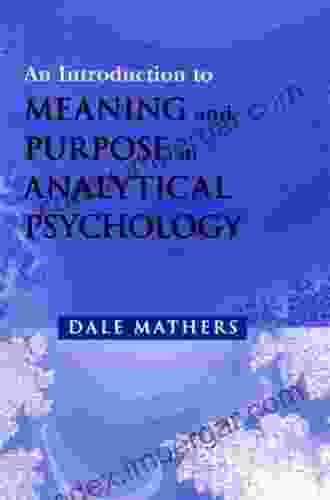Prelude: Unveiling the Hidden Crisis
Suicide, a devastating and preventable tragedy, plagues our society, leaving an immeasurable void in countless lives. Despite advancements in healthcare and mental health awareness, suicide rates continue to soar, leaving an alarming legacy of despair and loss. In this provocative and insightful book, "Suicide Prohibition: The Shame of Medicine," esteemed author Dr. Thomas Szasz exposes the profound failures of the medical establishment in addressing this pressing issue.
Unmasking the Medicalization of Suicide
Dr. Szasz meticulously dissects the flawed premise upon which suicide prevention rests—the notion that suicide is a mental illness that can be effectively treated through medical interventions. He argues that this medicalization of suicide has led to a misguided and counterproductive approach to suicide prevention.
4.8 out of 5
| Language | : | English |
| File size | : | 1092 KB |
| Text-to-Speech | : | Enabled |
| Screen Reader | : | Supported |
| Print length | : | 148 pages |
By labeling suicide as a mental illness, the medical establishment has inadvertently stigmatized those contemplating taking their own lives. Instead of acknowledging the complex interplay of psychological, social, and existential factors that contribute to suicidal behavior, the medical model reduces it to a psychiatric diagnosis, implying a simple "fix" through medication or therapy.
Challenging the Efficacy of Suicide Prevention
Dr. Szasz challenges the efficacy of conventional suicide prevention strategies, citing a lack of empirical evidence to support their effectiveness. He argues that prevention efforts often focus on restricting access to lethal means, such as firearms or prescription drugs, without addressing the underlying causes of suicidal ideation.
While these measures may offer temporary respite, they fail to prevent determined individuals from finding alternative means to end their lives. More importantly, they overlook the root causes of suicide—despair, hopelessness, and the absence of meaning—which require a holistic approach that extends beyond medical interventions.
The Erosion of Autonomy and the Right to Die
The medicalization of suicide has had far-reaching consequences, leading to an erosion of personal autonomy and the erosion of the right to die. By declaring suicide a crime and a mental illness, the medical establishment has effectively undermined the right of individuals to make choices about their own lives.
Dr. Szasz argues that prohibiting suicide violates the principle of self-determination and infringes upon the rights of individuals to end their suffering on their own terms. He advocates for the legalization of assisted suicide, allowing terminally ill or severely suffering individuals to choose a dignified and peaceful death with the assistance of a physician.
Redefining Suicide Prevention: A Call for Compassion and Understanding
Dr. Szasz calls for a fundamental shift in the way we approach suicide prevention. Instead of relying solely on restrictive measures and medical interventions, he advocates for a compassionate and understanding approach that focuses on addressing the underlying causes of suicidal ideation.
This involves providing accessible mental health care, reducing social isolation, and promoting a culture of empathy and support. By fostering a society where individuals feel valued and connected, we can create an environment where suicide is less likely to be considered a viable option.
: Breaking the Stigma and Embracing a Humane Approach
"Suicide Prohibition: The Shame of Medicine" is a powerful and thought-provoking work that challenges the status quo and demands a re-examination of our approach to suicide prevention. Dr. Szasz's insights unravel the failures of the medical establishment, exposing the stigma, autonomy erosion, and lack of efficacy that have characterized suicide prevention efforts to date.
By breaking the taboo surrounding suicide and embracing a more humane and compassionate approach, we can create a society where individuals are not shamed or punished for contemplating ending their own lives, but rather provided with the support and understanding they need to overcome their despair and find meaning in life.


























































































